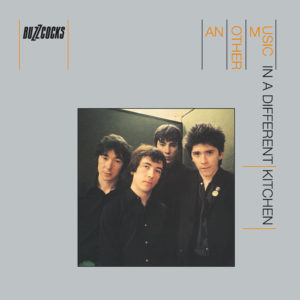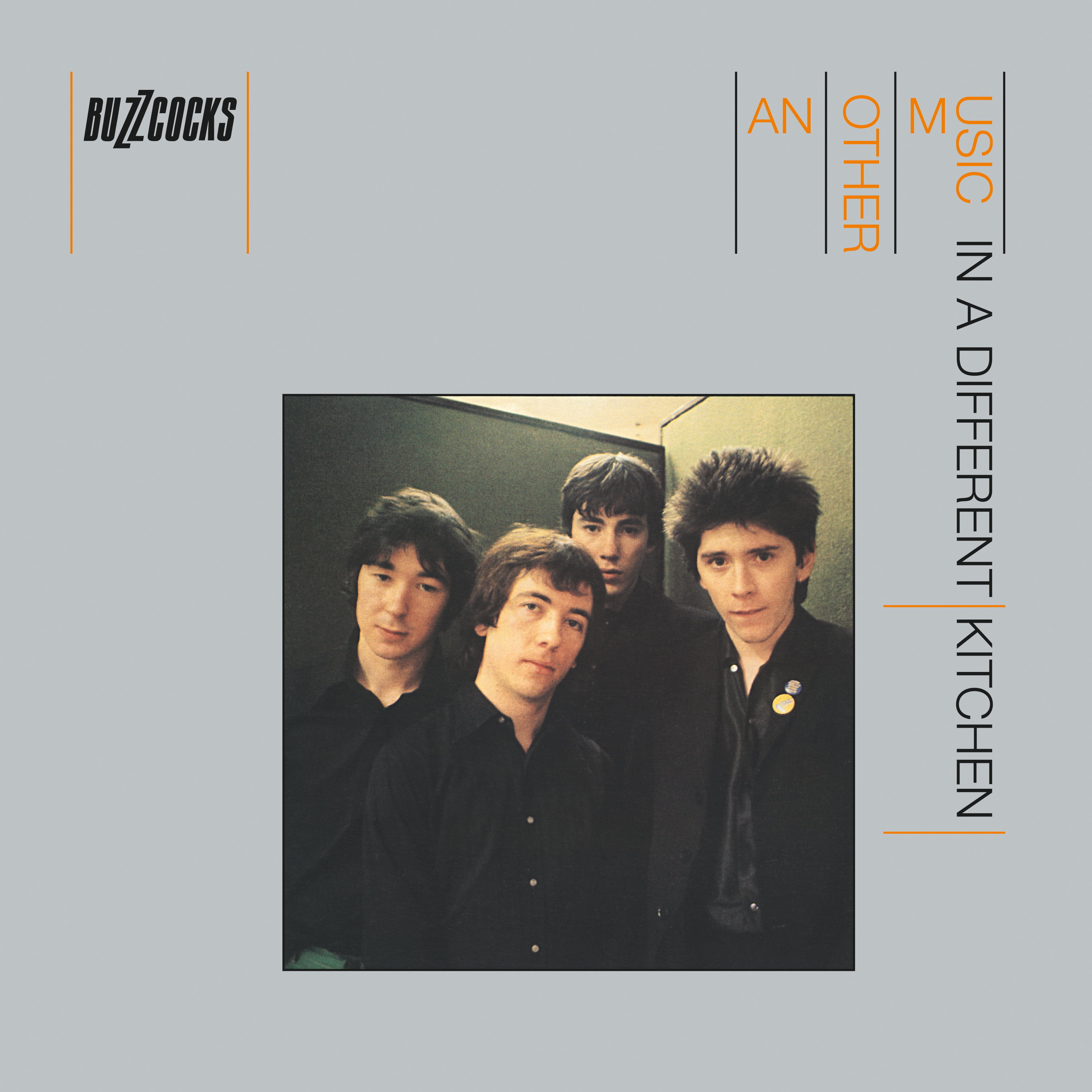 Buzzcocks
Buzzcocks
Another Music in a Different Kitchen / Love Bites [reissue]
DOMINO
8/10
Domino’s series of Buzzcocks reissues moves beyond its origin story of composer-singer Howard Devoto just in time to celebrate the late Pete Shelley—the British master of richly melodic (yet krautrock-inspired) power pop with an angsty, absurdist edge, who passed away at age sixty-three in December of last year. Though usually regarded for its short, sharp, repetitive singles (the Brit quartet’s best-known album is its Singles Going Steady compilation), 1978’s Another Music in a Different Kitchen and Love Bites proved that Buzzcocks could—and did—maintain dramatic and thematic tension through entire song cycles.
Another Music in a Different Kitchen is the noisier and more lyrically and emotionally cluttered of the two albums, pop-punkish but deeply indebted to the iteration and breadth that made Faust, Can, and Neu! testy. While “Fast Cars” and “I Don’t Mind” are frizzy pop tunes at their most anguished, “Moving Away From the Pulsebeat” and “Fiction Romance” teeter on an imaginary edge from all the raw, frazzled energy on Shelley’s part.
Love Bites misses much of Another Music’s raw power and oddball nervousness. Yet there’s greater rumination and self-loathing to counterbalance Buzzcocks’ somewhat sleeker new outlook, starting with the quartet’s most famous track, “Ever Fallen in Love (With Someone You Shouldn’t’ve?),” and its equally heart-busted sister songs, “Nothing Left” and “Real World.” For all the youthful effusion of those torrid tunes, “Nostalgia” shows off Shelley’s Ray Davies-esque fascination with romancing the past and exploiting the lonely dangers of the future.
Pulled apart or taken together as a snapshot of a year, these two albums portray a catty, caterwauling writer-singer and his immediate collaborators (Steve Diggle, Steve Garvey and John Maher were very much a unit, rather than just Shelley’s backing band) in a growth spurt celebrating its diversity. They also show off how Buzzcocks and Shelley changed the face of Brit pop from the minute they started.







